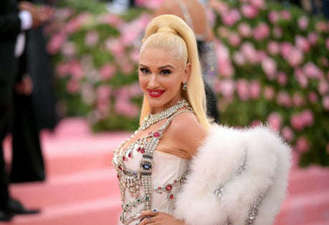NewsMay, 27 Gwen Stefani responds to ‘cultural appropriation’ backlash: ‘These rules are just dividing us more and more’
Pop star Gwen Stefani has addressed criticism of her “Harajuku Girls” era in a lengthy interview ahead of her new record. Stefani, 51, received backlash for the song “Harajuku Girls” and the promotional campaign for her 2004 album Love. Angel. Music. Baby. that saw her dress in styles among those worn in the famous Tokyo district of Harajuku and flanked by a group of Japanese performers on stage and at events. Speaking to Paper Magazine after the release of her new single “Let Me Reintroduce Myself”, Stefani defended her decision to include the four dancers – Maya Chino, Jennifer Kita, Rino Nakasone and Mayuko Kitayama – at red carpet appearances and in music videos. Stefani said she had a “deep fascination” with Japan because her father, who worked for music instrument brand Yamaha, would bring home Sanrio toys and tell her stories about his business trips to the country. She described performing with her former band No Doubt in Japan in 1996 as “a pretty big deal for me” and spoke of how “inspired” she was by the country. When she embarked on her solo career, she came up with the idea of having “a posse of girls” that she didn’t have during her time in No Doubt, who would be “Japanese, Harajuku girls, because those are the girls that I love”. “That’s where I would be if I had my dream come true, I could go live there and I could go hang out in Harajuku,” she said. The urban district of Harajuku district is especially famous for being home to numerous street fashion subcultures, including the various styles Stefani dressed in while promoting her album. Fashion in Harajuku and other well-known districts in Japan have been known to influence Western designers and artists. Over the years, Stefani has been accused of cultural appropriation, with comedian Margaret Cho branding the Harajuku Girls as a “minstrel show” and calls for her to apologise. But Stefani defended the era, arguing that “if we didn’t buy and sell and trade our cultures in, we wouldn’t have so much beauty”. “We learn from each other, we share from each other, we grow from each other. And all these rules are just dividing us more and more,” she added. The singer-songwriter has previously defended her use of the Harajuku Girls and their aesthetic in her appearances, and she did not regret that era in her career. In 2019, she told Billboard: “This album was like a dream… When the Harajuku Girls came out, it was like you’re not even real, you’re a dream. It wasn’t like, ‘You’re not real because you’re Asian.’ Are you kidding me? That would be horrifying!” She added that traveling to Japan was “really crazy” as someone who had never traveled outside the city she was raised in, Anaheim, California, until she was 21 years old. “I get a little defensive when people [call it cultural appropriation], because if we didn't allow each other to share our cultures, what would we be? “You take pride in your culture and have traditions, and then you share them for new things to be created,” she said at the time.
Source: msn.com
May, 29
May, 29
May, 29
May, 28
May, 27 |
||
|
|
||